Category: Hymns
-
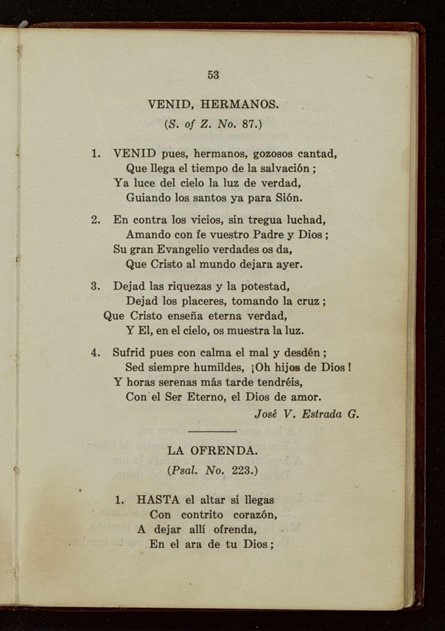
“Venid, Hermanos”: Mexican Mission Hymns, Part 8
To the degree that members of the Church live the gospel and follow the counsel of the prophets, they will, little by little and even without noticing it, become sanctified. Humble members of the Church who conduct daily family prayer and scripture study, engage in family history, and consecrate their time to worship in the…
-
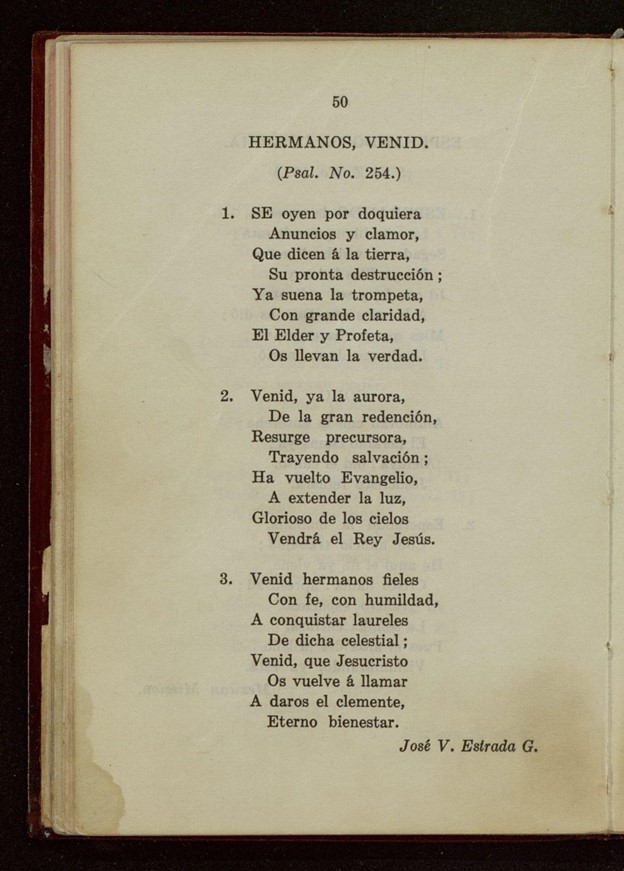
“Hermanos, Venid”: Mexican Mission Hymns, Part 7
Problems form an important part of our lives. They are placed in our path for us to overcome them, not to be overcome by them. We must master them, not let them master us. Every time we overcome a challenge, we grow in experience, in self-assuredness, and in faith.[1] ~Horacio A. Tenorio Note: This is…
-
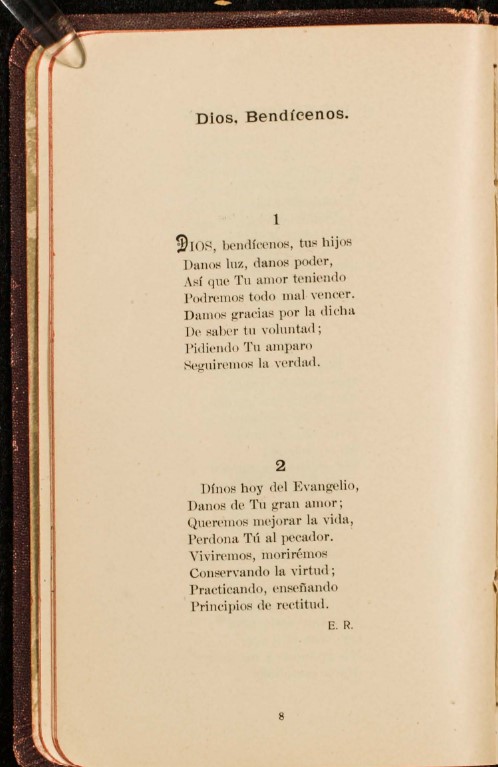
Dios, bendícenos: Mexican Mission Hymns, Part 6
LNote: This is a part of an ongoing series. To start at the introduction, follow the link here. Hymn Text: “Dios, bendícenos”, by Edmund Richardson, is an interesting example of a hymn where it’s not clear if it’s meant to be an original text, a translation of an existing hymn, or something in between. It…
-
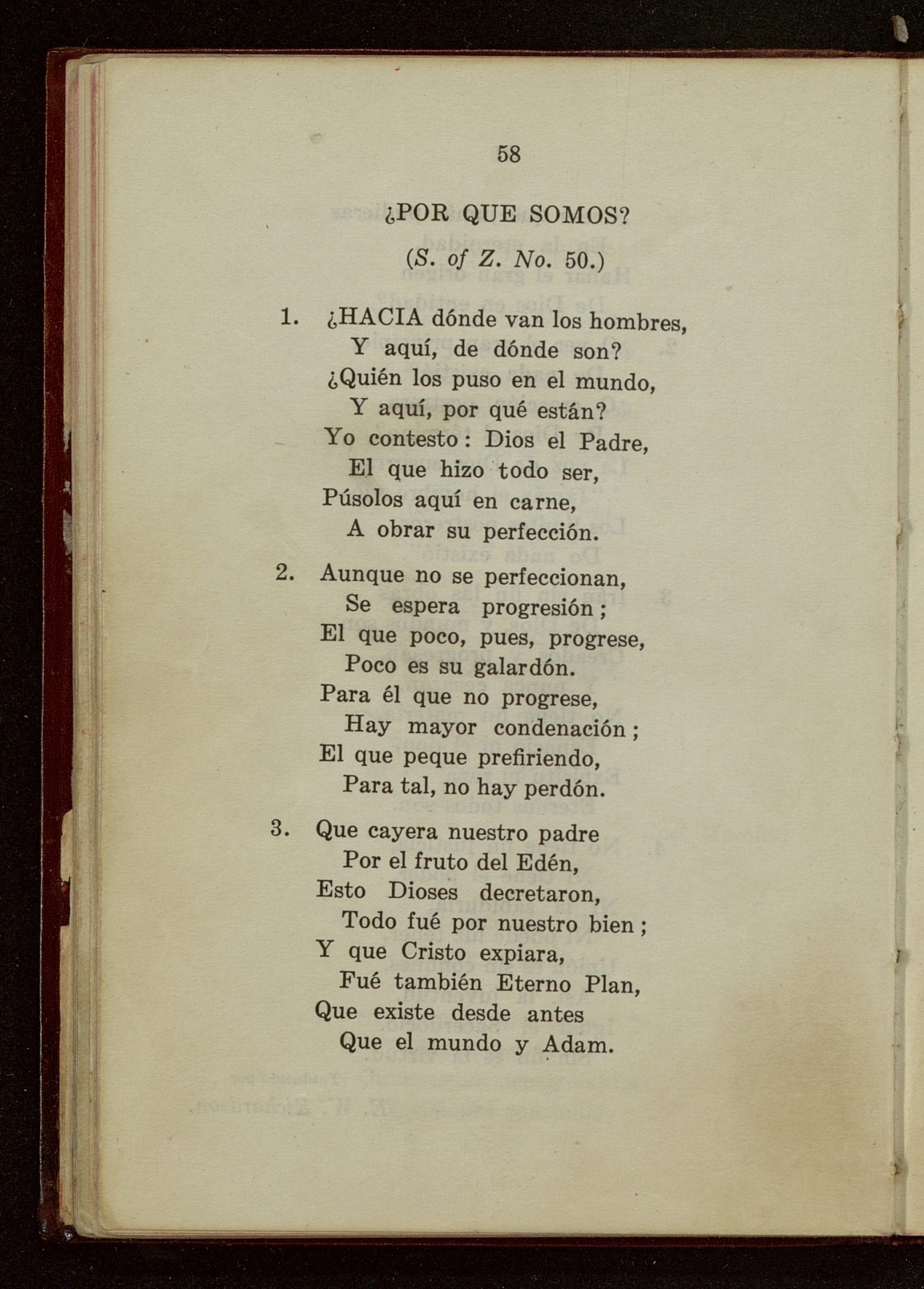
¿Por qué somos?: Mexican Mission Hymns, Part 5
Our Father knows and loves His children all over the world, from Boston to Okinawa, from San Antonio to Spain, from Italy to Costa Rica. In Ghana, President Gordon B. Hinckley recently thanked the Lord “for the brotherhood that exists among us, that neither color of skin nor land of birth can separate us as…
-
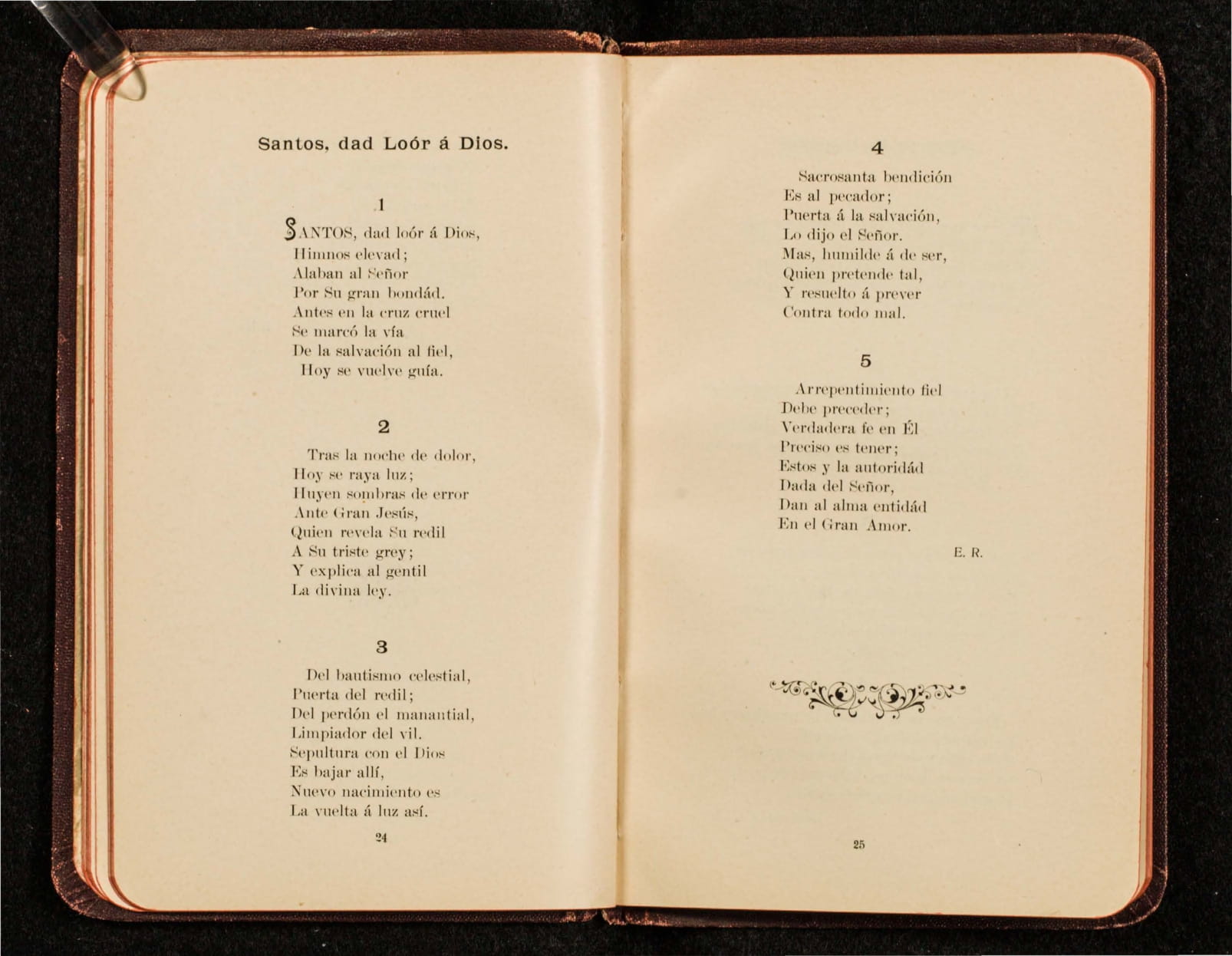
Santos, Dad Loor á Dios: Mexican Mission Hymns, Part 4
What greater power can you acquire on earth than the priesthood of God? What power could possibly be greater than the capacity to assist our Heavenly Father in changing the lives of your fellowmen, to help them along the pathway of eternal happiness by being cleansed of sin and wrongdoing?[1] ~Adrián Ochoa Note: This…
-
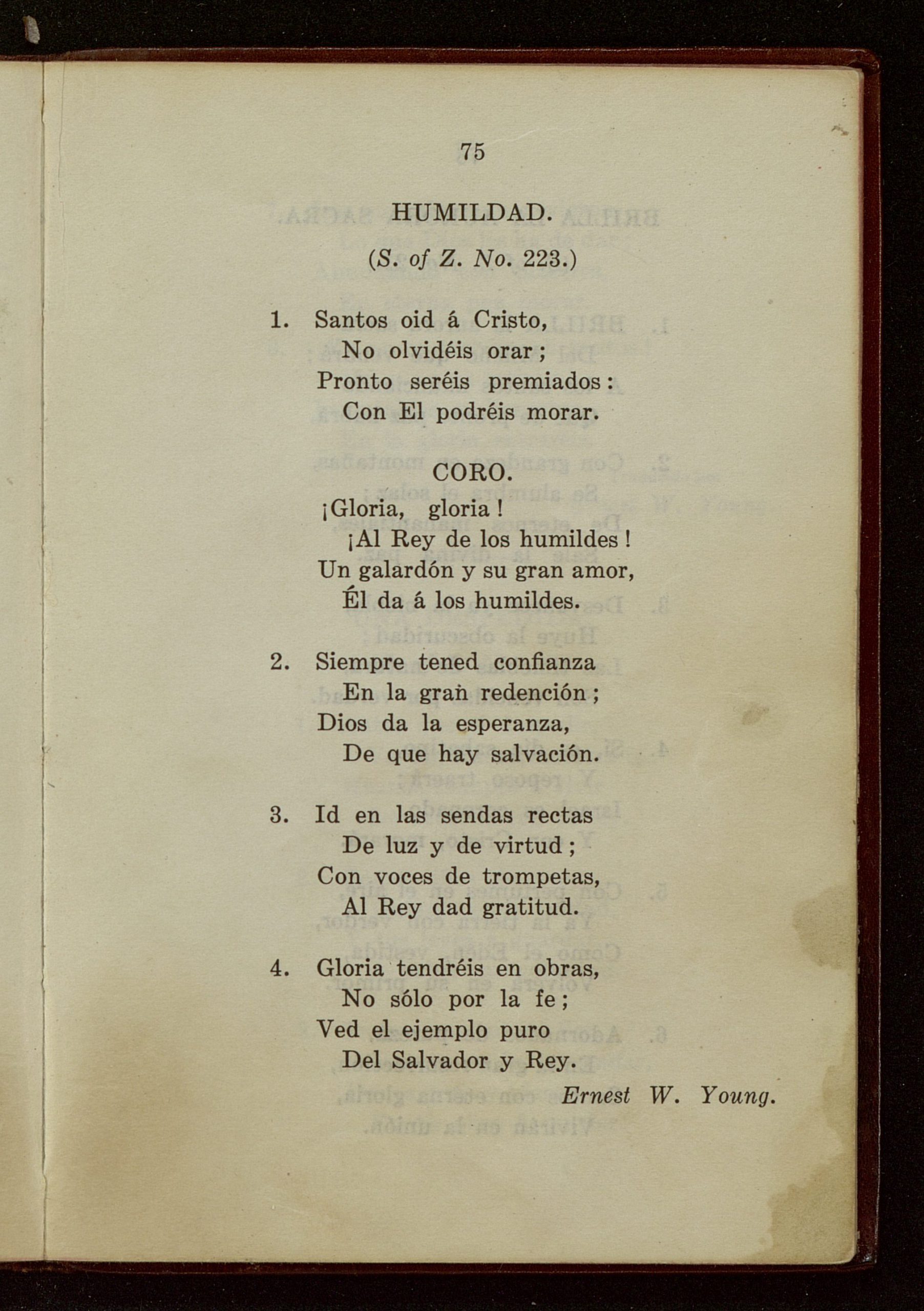
Humildad: Mexican Mission Hymns, Part 3
Oh, beloved brethren! Let us always remember the teachings of the prophets, let us always remember the teachings of our Lord Jesus Christ which he brought us in the meridian of time. Let us remember also his exhortations to our people here in the Americas, which are recorded in the Book of Mormon; let us…
-
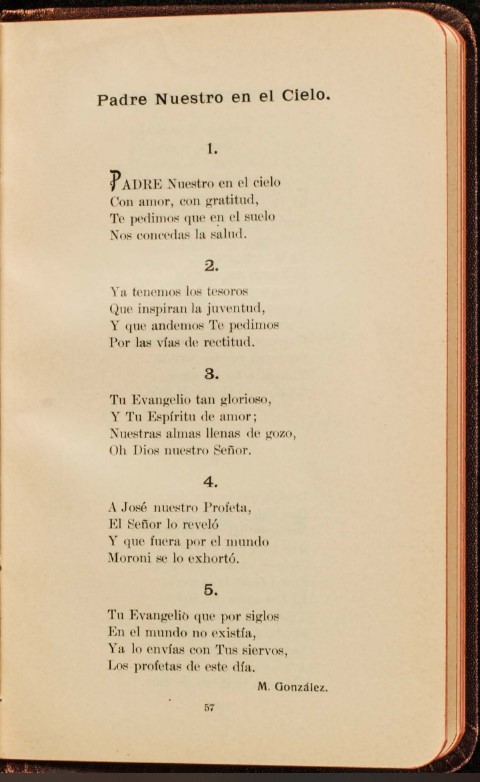
Padre Nuestro en el Cielo: Mexican Mission Hymns, Part 2
Note: This is a part of an ongoing series, the Mexico Mission Hymns Project. Hymn Text: Padre Nuestro en el Cielo by Manrique González was one of the earliest-published Spanish hymns in the Church of Jesus Christ of Latter-day Saints. It was published in the 1907 Mexican Mission Himnario Mormón (p. 57, see Figure 1)…
-
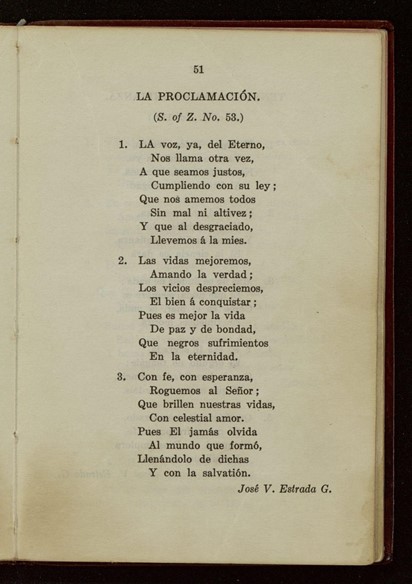
La Proclamación: Mexican Mission Hymns, Part 1
“I know for myself that Joseph Smith was a prophet because I have applied the simple promise in the Book of Mormon: ‘Ask God, the Eternal Father, in the name of Christ’ (Moroni 10:4). In simple words, look up.”[1] ~Adrián Ochoa Note: This is a part of an ongoing series, the Mexico Mission Hymns Project.…
-
Announcing a Mexico Mission Hymns Series
I’m excited to announce a new project that I’ll be sharing on Times and Seasons over the next few months – my Mexico Mission Hymnody project. A few years ago, a future new edition for the Hymns of the Church of Jesus Christ of Latter-day Saints was announced. While working on what would become my…
-
Ghostwriter to the Prophet
I suspect that if we really knew and experienced the early history of the Church of Jesus Christ of Latter-day Saints for ourselves, we might be surprised by who were the most influential members in shaping the developing Church. In a recent From the Desk interview, Bruce A. Van Orden discussed one candidate for that…
